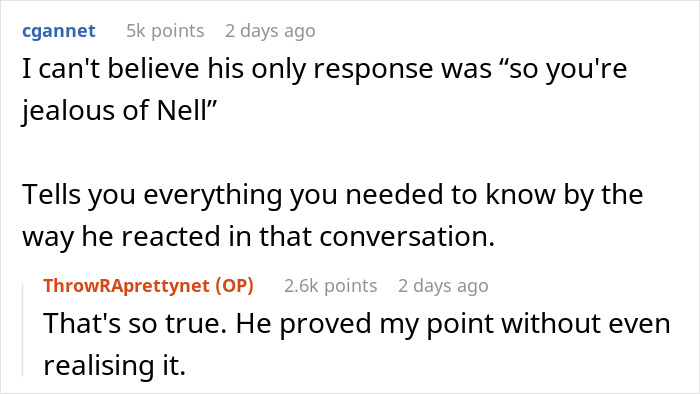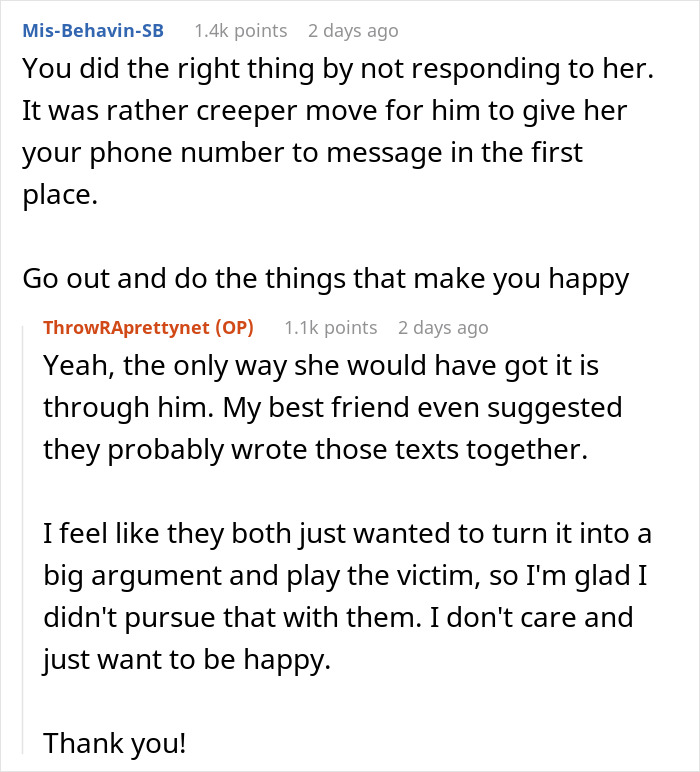It’s not always a requirement for you to like your partner’s friends, but you should at least have a healthy relationship of some sort with them. However, sometimes an established friendship can become an actual long-term issue for a couple, so it’s always healthy to tell your partner how you feel.
A woman asked for some relationship advice when she realized her boyfriend’s female friend truly disliked her. We got in touch with licensed therapist and founder of Remble, Jordan Green, to learn more about boundaries in relationships. We also reached out to the woman who shared the story via private message and will update the article when she gets back to us.
Your partner’s friends might not always like you
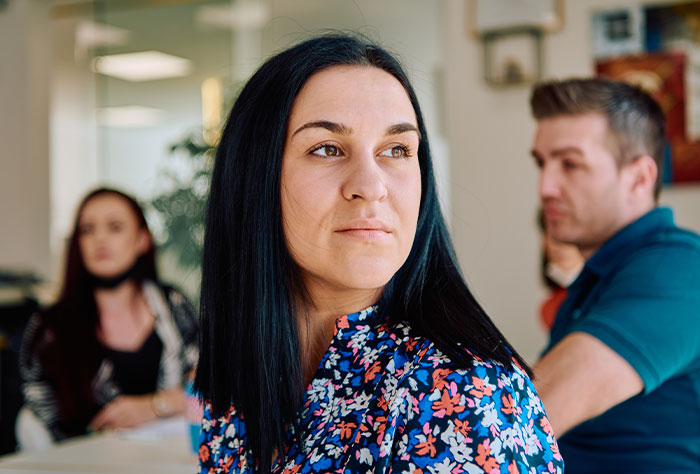
Image credits: dotshock (not the actual photo)
A woman decided that she had enough of her BF’s female friend bullying her
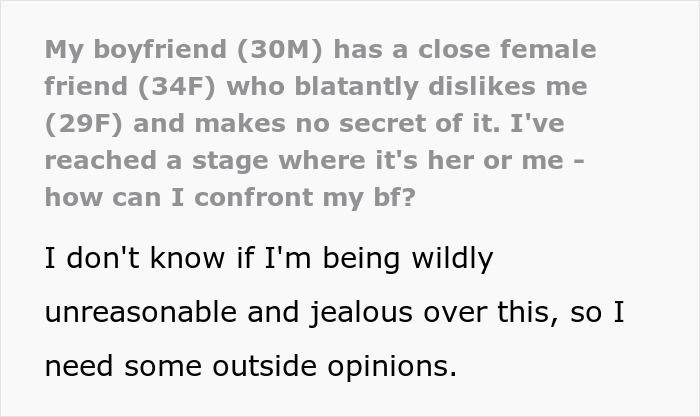

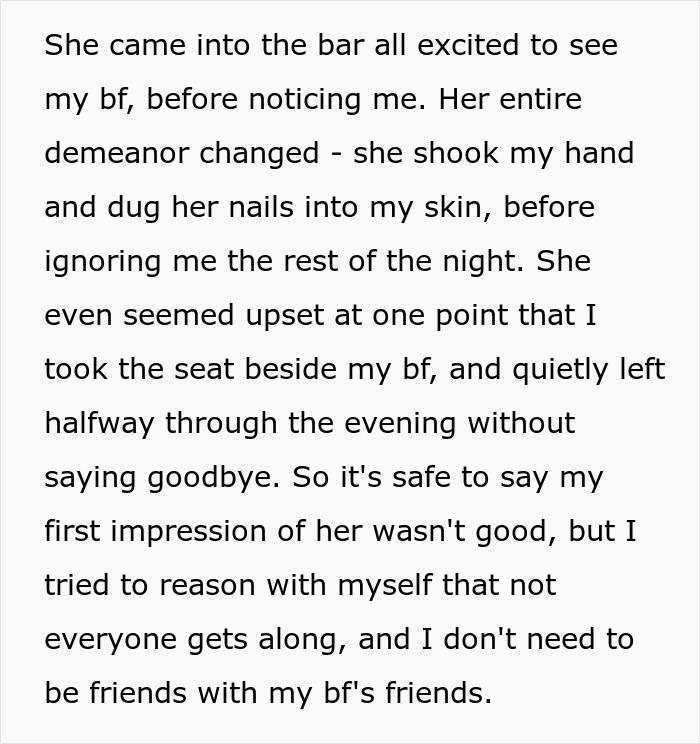
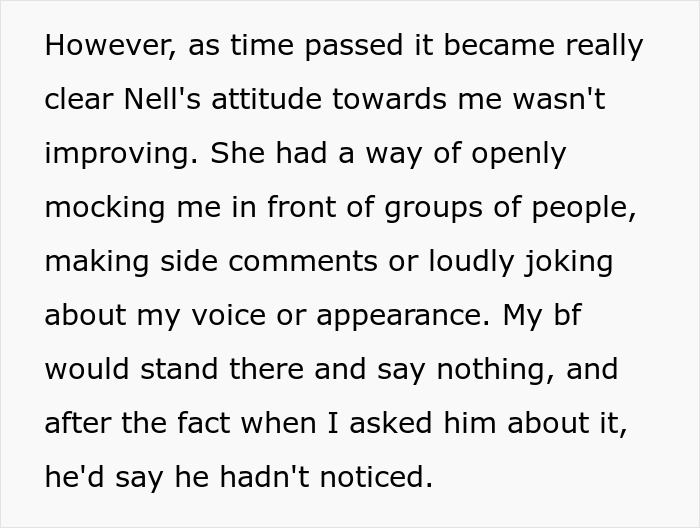
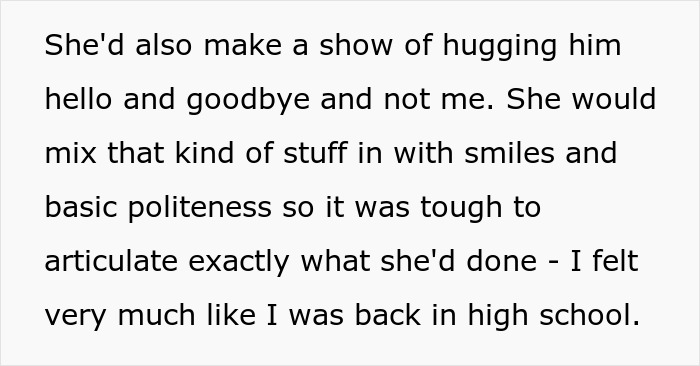
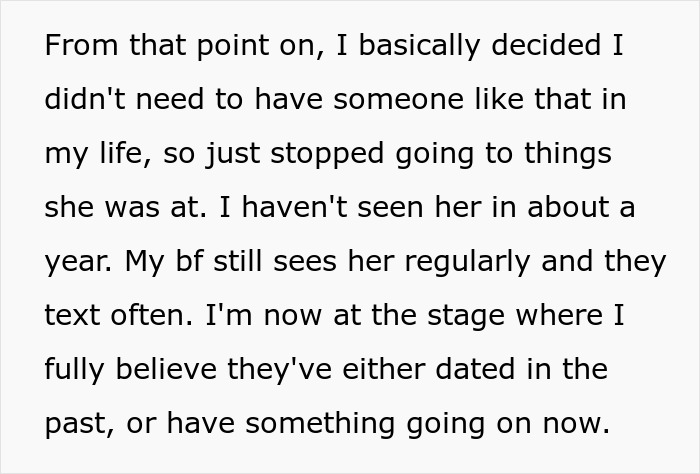
Image credits: FoToArtist_1 (not the actual photo)
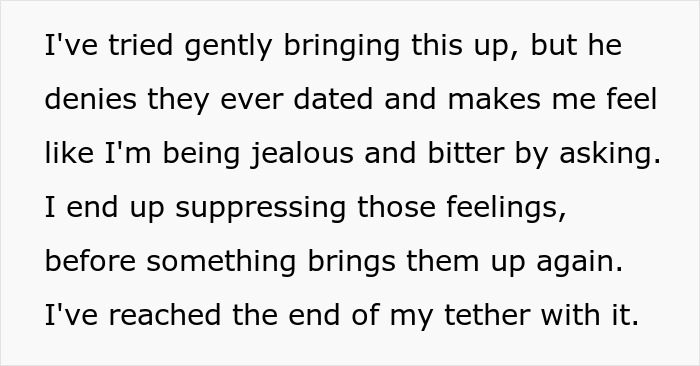

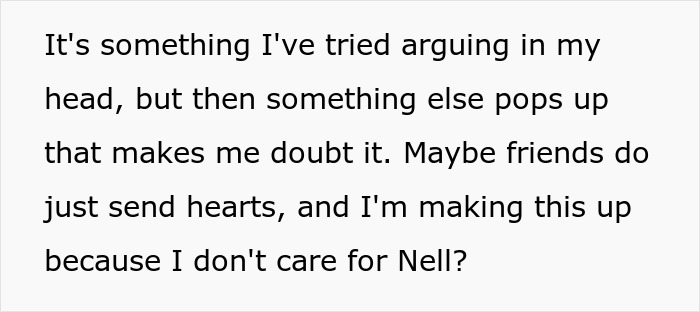
Image credits: voronaman111 (not the actual photo)
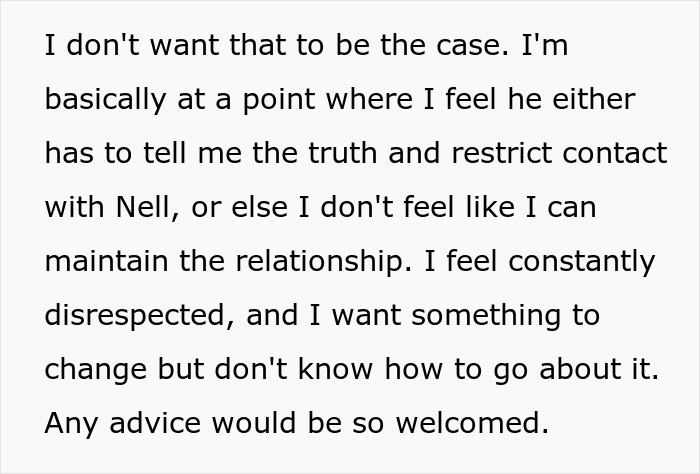
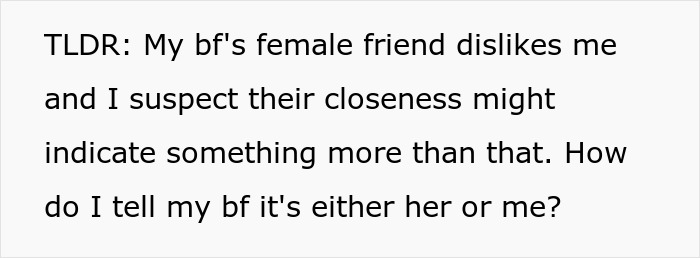
Image source: ThrowRAprettynet

Image credits: Rawpixel (not the actual photo)
Your partner can break your trust often without even realizing it

Image credits: SHVETS production (not the actual photo)
Bored Panda got in touch with licensed therapist and founder of Remble, Jordan Green, to learn more about trust and boundaries in relationships and she was kind enough to answer some of our questions. First, we wanted to hear about some of the more common breaches of trust in general. “Lying or hiding information is a clear breach of trust, often beginning with initial dishonesty and secrecy that starts long beforehand. More frequently, I see lies of omission, where partners fail to share important feelings, thoughts, or experiences. For example, not sharing concerns about job stress or hiding doubts about your relationship can create distance,” she shared.
“When we are not honest with ourselves about our own needs, desires, or feelings, we can unconsciously behave in ways that breach trust. We might hide our true emotions to avoid vulnerability or discomfort, which prevents authentic connection. Avoiding difficult conversations or pretending everything is fine when it’s not can create a facade of trust that eventually crumbles. For instance, avoiding discussions about financial stress or unresolved conflicts can lead to growing resentment and misunderstandings.”
“Making promises and then breaking them is another way trust is eroded. If you promise to be home at 5pm. but show up at 5:30 without updating your partner, it undermines reliability and consistency. This seemingly small act, if repeated, can signal to your partner that they are not a priority, which creates insecurity and doubt.”
There are some steps people can take to help bring trust back in their relationships

Image credits: Andres Ayrton (not the actual photo)
So we then wanted to know what couples can do to rebuild trust. “One of the simplest and most effective ways to establish trust is to be open and honest about your feelings, thoughts, and experiences. Sharing your inner world with your partner creates a sense of safety and connection. Consistent and reliable behavior is another way to build trust. Keeping promises, following through on commitments, and being dependable in everyday actions show your partner that they can count on you. For example, if you say you’ll be home at a certain time, make sure to follow through or communicate any changes,” she shared with Bored Panda.
“Truly listening to your partner without interrupting or judging is also important for building trust. Being present and responsive to their needs, showing vulnerability, and sharing your own emotions can encourage your partner to do the same. During conflict, a simple yet powerful repair practice is to pause, sit facing each other, hold hands, and make eye contact. Begin to breathe slowly and deeply together, synchronizing your breaths.”
“As you do this, focus on the connection between you, allowing the shared breathing and eye contact to calm your nervous systems and reduce tension. After a few minutes, remind each other that you are on the same team, that you care deeply about one another, and that you are committed to working through challenges together. This practice not only de-escalates conflict but also reinforces your bond and shared commitment, ultimately deepening trust between you.”
Forgiving someone can often be too much to deal with

Image credits: Katerina Holmes (not the actual photo)
This is all easier said than done, as forgiveness can be pretty hard at times. “Forgiving a partner after they do something wrong can be challenging for several reasons. Trust, once broken, takes time and effort to rebuild. When trust is compromised, it often triggers deep emotional wounds and feelings of hurt and anger. These emotions need to be acknowledged and processed before forgiveness can occur.”
“There’s often a fear that the wrongdoing will happen again, creating anxiety and uncertainty about the future of the relationship. When trust is broken, the sense of safety is shattered. Many find themselves replaying the event in their minds, making it difficult to move forward. How the injured partner interprets the intention behind the act also plays a role; if seen as intentionally hurtful, forgiveness becomes even harder.”
“Forgiveness requires vulnerability. The injured partner might hold onto their anger as a way to protect themselves from further harm. Moving beyond this can be challenging and requires a strong belief that the relationship is worth the effort. Forgiveness is a journey that involves both partners working together to rebuild trust, communicate openly, and demonstrate commitment to change. It requires patience, understanding, and a willingness to heal together. While the path may be difficult, many couples find that working through these challenges can ultimately bring them closer and make their relationship more resilient.” If you want to read what happened to this couple, the woman later shared an update, which can be found below.
Readers shared their thoughts and gave some suggestions
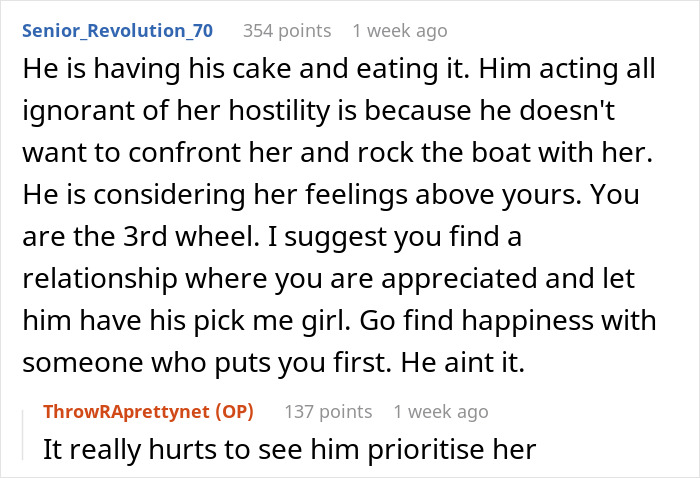

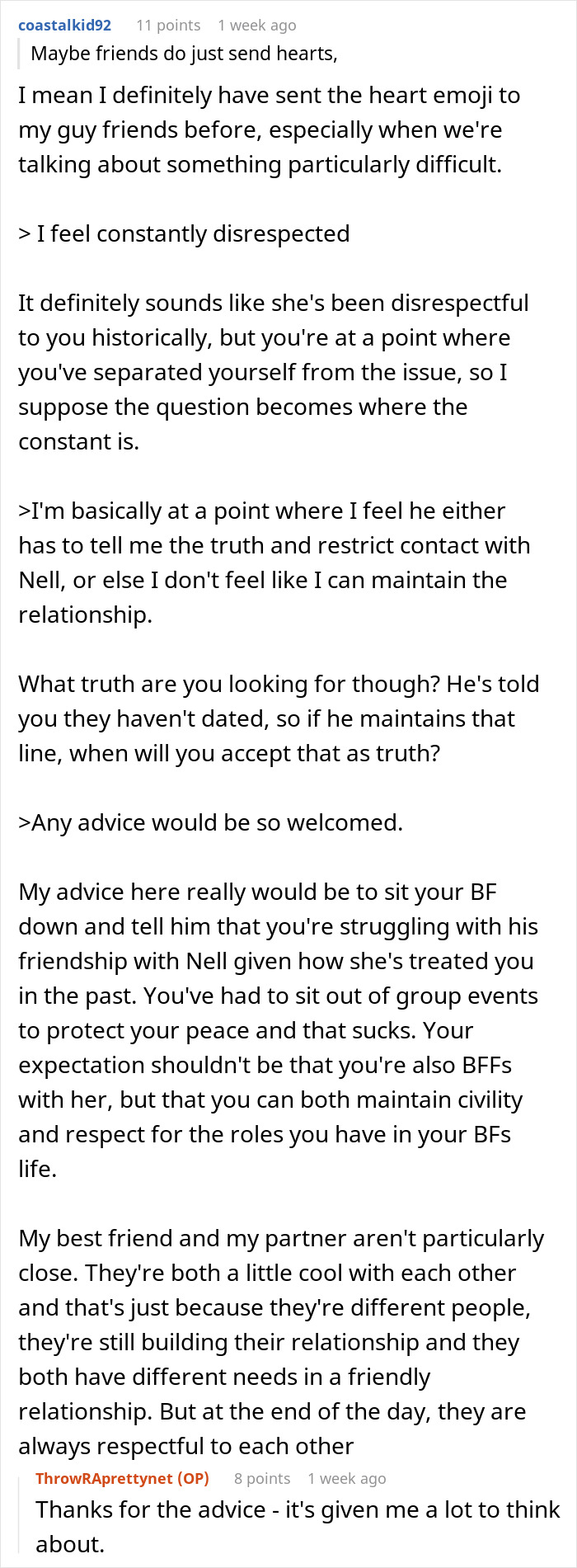

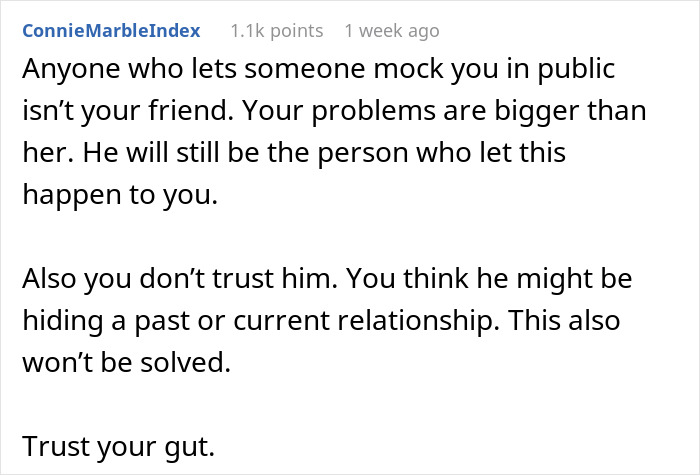
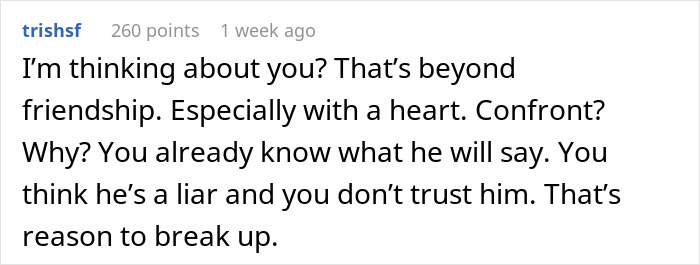

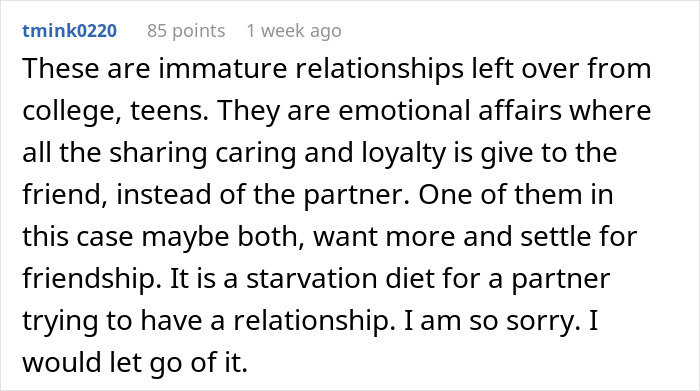
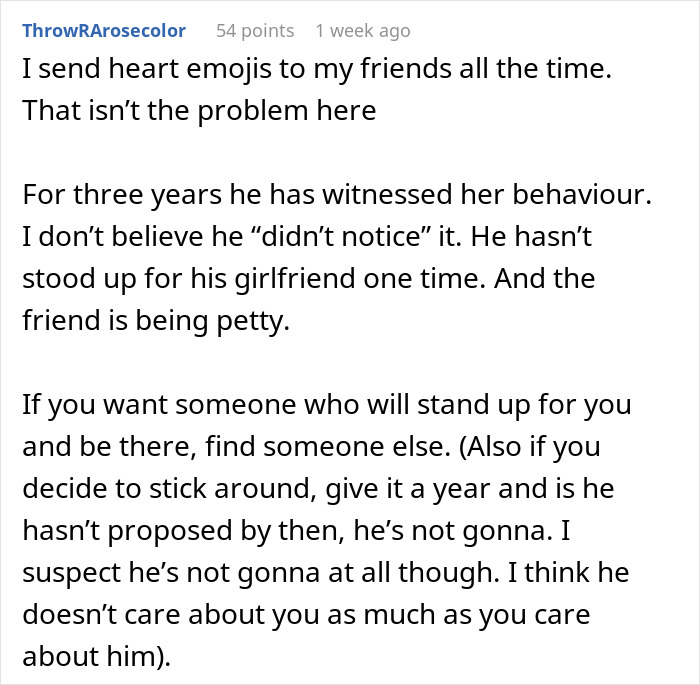
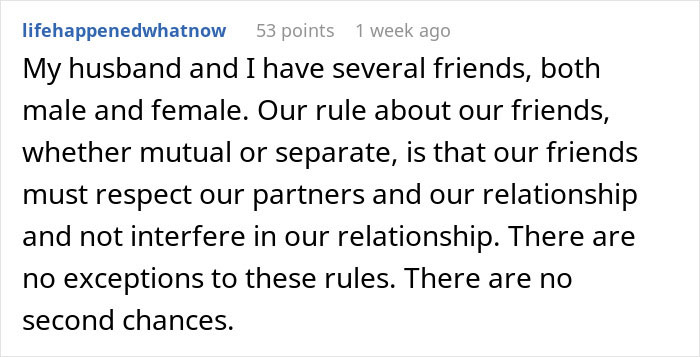

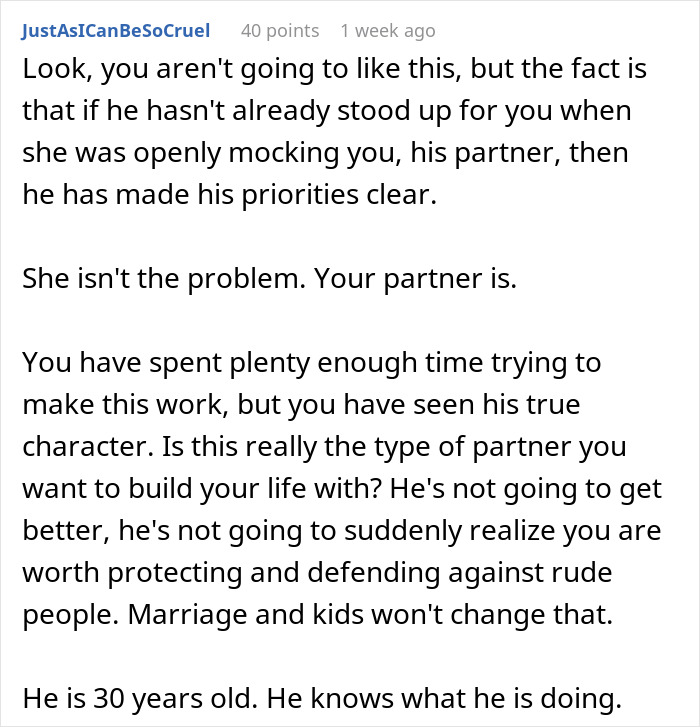





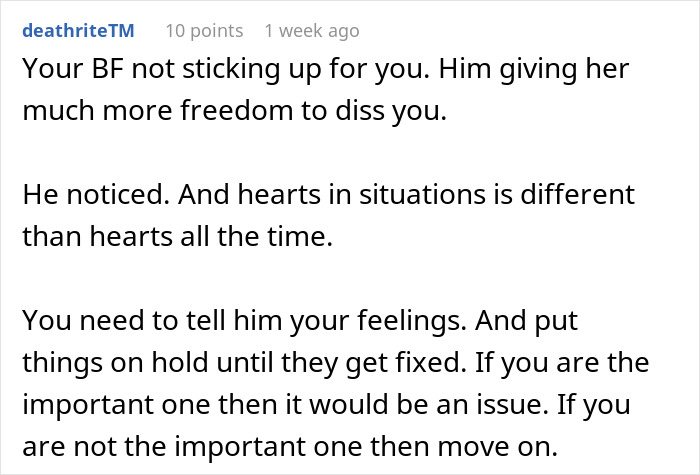
Others shared similar stories
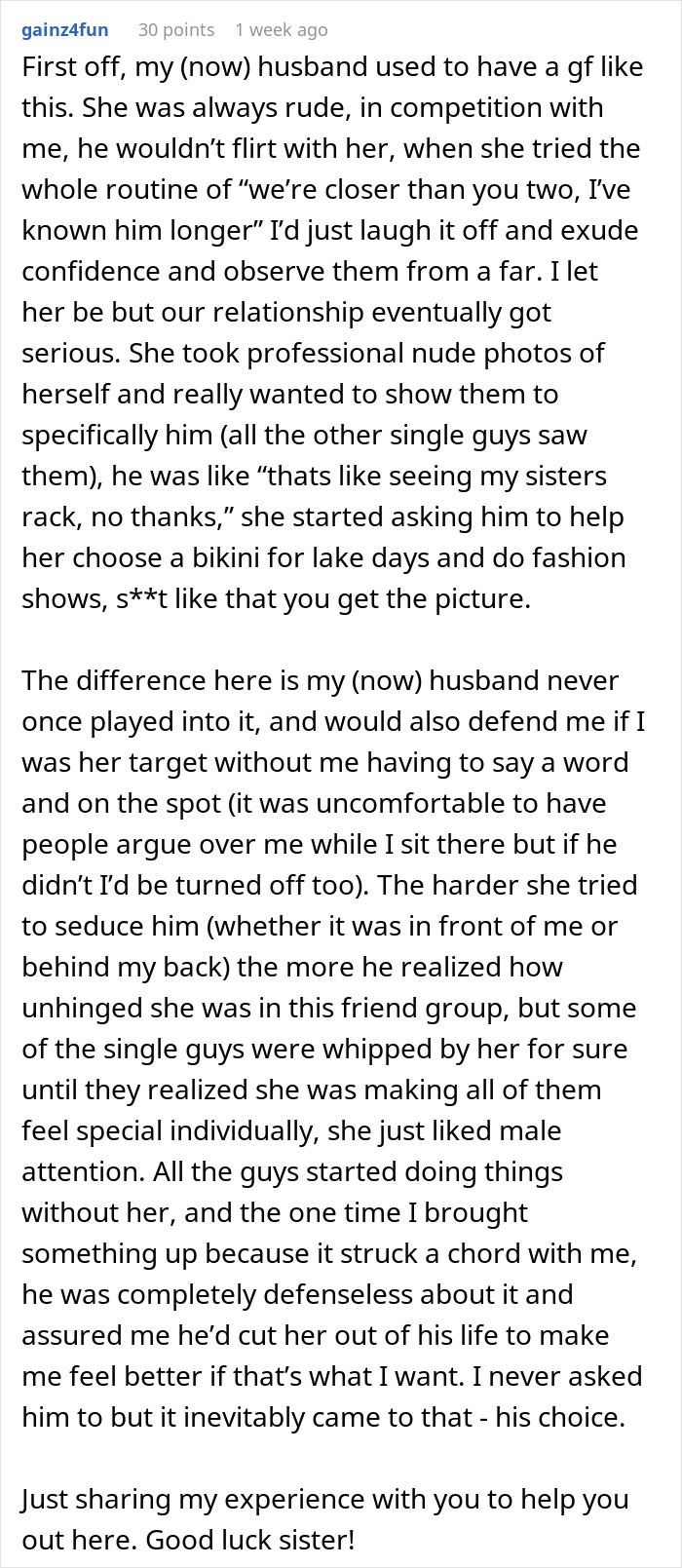
A few days later, she shared an update










Image credits: GaudiLab (not the actual photo)



Image source: ThrowRAprettynet
Commenters shared their thoughts on the ex and his friend
